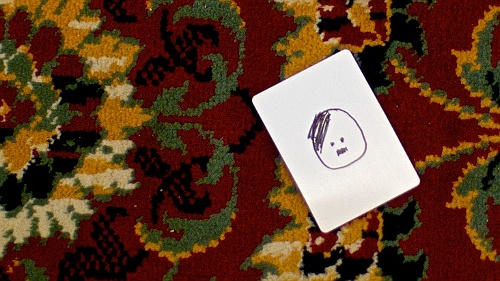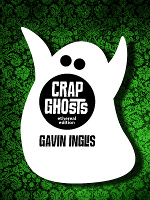Blog
The Death of Showbiz
1st March 2011
Old Blackpool attitudes meet an enlightened audience.I visited Blackpool recently for my first magic convention. I saw some amazing things: guys reading cards held behind their back, mental transmission of a date between two strangers from the audience, dancers producing seemingly endless packs of cards, and even a dodgy levitating couch. But the most amazing thing was entirely spontaneous.
Having registered very late, my seat for the Saturday night gala show was in the back row of the balcony; not too bad for somebody with an interest in magic, as you get the benefit of an often revealing overhead view. The guy in the next seat groused about how bad the compere had been last year.
When the new compere came out he reminded me a lot of Ted Bovis from Hi-De-Hi. He talked about celebrating 36 years in showbiz, that he lived in Tenerife now, and worked on the Queen Mary 2. He had a real flavour of the old Blackpool about him.

Of course I had a flavour of Blackpool already. The sky was grey for my entire visit, tram works blocked most access to the seafront, and my hotel featured earnest young performers knocking out tired old showtunes to a disinterested audience who got free drink between 7pm and 10pm.
The trouble was, for a guy who had been 36 years as a stand-up comedian, he wasn’t very funny. He cracked some weak jokes about the Welsh, the Scots and the Irish. Then he mimed a camp walk. He did a Larry Grayson impression. I don’t think Larry Grayson has been on TV for twenty years. It was pretty tedious. But he claimed kinship with the assembled audience of magicians because they were “in the business”.
What he failed to do was adapt to that audience, who were a younger breed than the ageing Northerners he was accustomed to, on the cruise ships he mentioned five or six times. For a while he got a lukewarm reaction, and general relief when he introduced the feature acts.
Then one guy in the balcony heckled him. He didn’t hear it, but he heard chuckles from the audience nearby. “What are they laughing at?” he asked. “Not you anyway,” yelled the heckler, and got a genuine laugh from the three thousand capacity hall.
Our host diverted into warm stories about Bernard Manning and a lecture on how he’d never “used language” in his career and how when he wanted to talk about “a certain subject — you know the one” he used the term “gardening”. Cue stories about husbands spending time on their allotments.
At this point, the heckler started a slow clap that spread across the balcony and down. I joined in with immediate delight. “Why are they clapping?” asked the puzzled compere, and when he worked it out, he was furious.
“I’ve never witnessed anything so disgusting in my life,” he said. “And you’re supposed to be in the business. You should be ashamed of yourself.” He was sufficiently passionate about respecting other performers that I felt guilty for joining in. “I’ve been in this business for 36 years and you will not shake me.” He got applause from scattered sections of the audience.
Five minutes later, he had passed through “I don’t have anything against gay gentlemen but (shiver) it’s not for me … yeuchh.” Now he was talking about women wearing bikinis without shaving their pubic hair first. He referred to it as “trimming the lawn”. The slow clap started again and this time most of the room joined in. He took offence again and determined to only introduce the acts, with no further comedy. But he never came back.
Later there was talk in the pub of whether we were out of line. But I felt fine. His material was racist, sexist and homophobic. He was performing to an audience from around the UK, with many women and gay people. He’d probably been using the same set for 36 years without bothering to update or adapt it. I enjoyed him as a dated, clichéd, colourful local character. But I really enjoyed watching three thousand people reject him.
